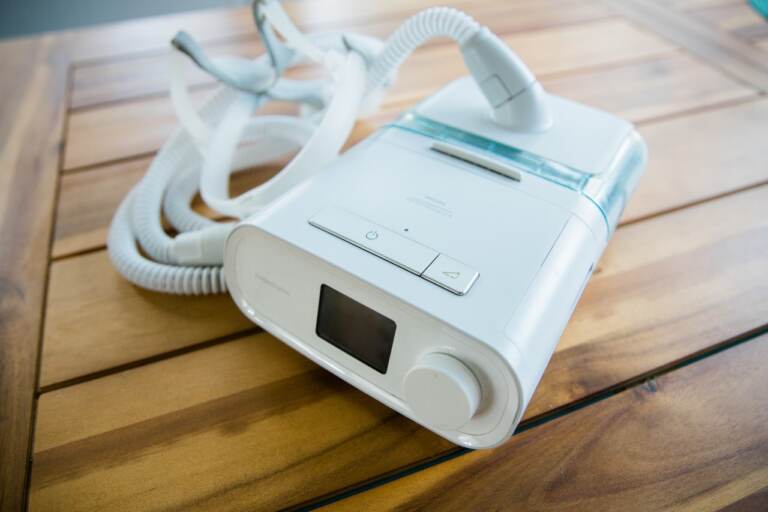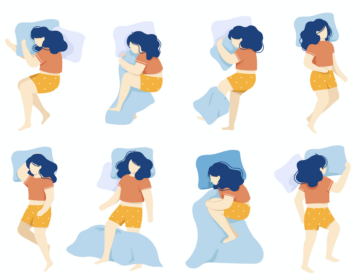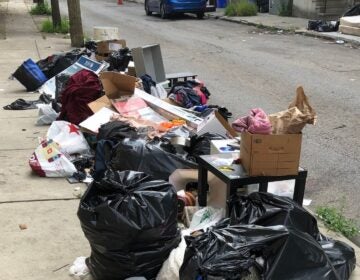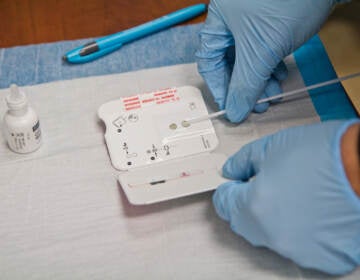Recall of sleep apnea aids leaves some people feeling stuck between two risky choices
Philips Respironics recalled devices with sound-dampening foam that degrades and can cause health issues. Replacement or repair could take 12 months.

A Philips Dreamstation C-Pap machine, one of the sleep apnea aids recalled by Philips Respironics because of a sound-dampening foam that degrades, posing health risks. (Dominic Mercier)
When Dan Bisogno can’t use his BiPap machine as he sleeps, it’s like waking up to the worst hangover ever, he says — and usually, his wife isn’t too happy either. The device treats Bisogno’s sleep apnea, a disorder in which he stops breathing while he sleeps. Without the machine to keep his airways open, Bisogno wakes up with a loud bellow in the middle of the night.
Bisogno, who lives in Philadelphia, has been using his current BiPAP machine for the last two years. But Philips Respironics has recalled the machine, along with other BiPAP, CPAP and ventilator models, and Bisogno is worried that it’s actually been hurting him.
Not using their devices may not be an option, though, for people with severe sleep apnea symptoms like Bisogno or for those who need treatment around the clock.
“I’ve been using this machine for the better part of two years, six to eight hours a night, for every single night,” said Bisogno. “It goes with me everywhere I go. It goes with me with my wallet and my keys and my cellphone. It’s an extension of my person.”
The recall, issued June 14 by Philips Respironics, affects millions of the manufacturer’s machines, used to treat sleep apnea and respiratory failure. The company has said its goal is to replace or repair the affected machines within 12 months.
The devices contain a sound-dampening foam, which degrades into black particles that users might inhale. This debris could cause skin, eye, and respiratory tract irritation; inflammation; headache; asthma; and other adverse effects to other organs. It could also cause cancer: The recall lists carcinogenic chemical emissions from the foam as a potential hazard.
The Food and Drug Administration has classified the recall as Class I, which is used to designate situations in which there is a reasonable probability that the product could cause serious health consequences or death.
Philips advises users to stop using ozone-based cleaners, which break down the foam faster. It also instructs users to stop using non-life-sustaining machines, but Bisogno doesn’t feel he can do that.
“The only guidance I’ve been given was from the manufacturer who told me to stop using it, which I would equate to somebody telling a diabetic to stop using their insulin without actually giving them a solution,” said Bisogno. “It’s not an option.”
Without the BiPap, Bisogno said, he is exhausted, cranky and sore, and he needs coffee to get through the workday. Because he drives a lot as part of his job in sales and marketing for a beer wholesaler, Bisogno sees his sleep apnea machine not only as a device that’s important for his personal health, but for the health and safety of others on the road as well.
Temple Health’s Dr. Fred Jaffe, who works in sleep medicine and pulmonology, said users of the recalled devices should talk to their physicians before they stop using them. He said his office has been fielding 15 to 20 calls a day from patients asking for advice.
For some, the symptoms are severe enough that the benefits outweigh the potential dangers, Jaffe said, and they should continue using their machines.
“I wouldn’t suggest somebody saying, ‘Well, I’m going to not use my machine. I’m going to register my machine, and I’ll wait for a replacement.’ Because depending on their symptoms and the severity, they could be putting their health at risk,” he said.
For others, depending on the severity of their symptoms, there may be treatments such as dental and positional devices their doctors can recommend while the patients wait for new machines.
Someone who uses a recalled device can try to get a machine from another company, but there are plenty of hurdles, including getting insurance to approve it. Out-of-pocket costs for these devices range from a few hundred dollars to almost $2,000. Even people who are eligible for a new machine or have the money to pay may still find it difficult to get one — supplies are low.
For many patients, including Bisogno, there isn’t a lot they can do but wait. They’re worried about the potential dangers of a device meant to keep them healthy, but without a replacement, they’re stuck.
Many have taken to social media to vent their frustrations, in particular about how poorly the recall was communicated to users. It’s these posts that have alerted many people to the problem in the first place rather than Philips Respironics, or the durable medical equipment companies that sell the devices, or the users’ physicians.
That was the case for Bisogno, who found out about his machine from a social media post looking for interviewees for this article.
“That’s not the way I wanted to find out,” said Bisogno. “I would have liked to find out about it any way — a message in a bottle would have been fine — if it would have got to me first.”
Users can check whether a device has been recalled or register a recalled machine at Philips.com or by calling 877-907-7508.

Get daily updates from WHYY News!
WHYY is your source for fact-based, in-depth journalism and information. As a nonprofit organization, we rely on financial support from readers like you. Please give today.






